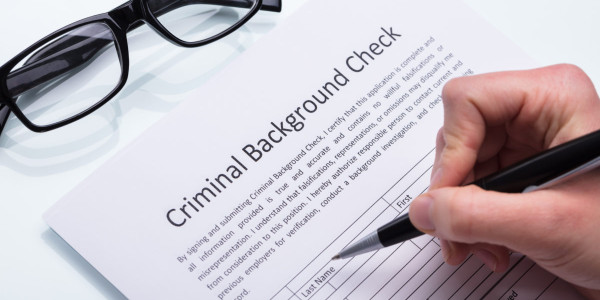Unveiling the Truth: A Comprehensive Guide to Criminal Checks

Criminal background checks have become an essential part of modern hiring and screening processes. They provide valuable insights into a candidate's past, helping organizations make informed decisions and protect their employees and customers. In this comprehensive guide, we will delve into the world of criminal checks, exploring their types, importance, and the legal aspects surrounding their use.
The Types of Criminal Background Checks
County Criminal Check: This is the most common form of criminal background check. It involves searching records at the county level to uncover any convictions or arrests within a specific geographic area. County checks are crucial as they can reveal local offenses that may not appear in broader databases, like national searches.
State Criminal Check: These checks look at the records maintained by a particular state's law enforcement agencies. They are more comprehensive than county checks but may still miss offenses that occurred in other states.
National Criminal Database Check: This check covers a broader geographical scope, searching a nationwide database of criminal records. While it provides a wide-ranging overview, it is not always as accurate as county or state checks and may include incomplete or outdated information.
Federal Criminal Check: This type of check focuses on federal crimes, such as fraud, tax evasion, or immigration violations. It is typically used for positions involving financial responsibility.
Sex Offender Registry Check: These checks search databases of registered sex offenders. They are essential for positions involving children or vulnerable populations, such as healthcare workers and educators.
The Importance of Criminal Background Checks
Protecting Employees and Customers: Criminal background checks help safeguard your workforce and customers. By identifying potential risks early, you can reduce the chances of hiring individuals who may pose harm to others.
Avoiding Legal Liabilities: Negligent hiring can lead to legal issues, including lawsuits and financial penalties. Conducting thorough criminal checks demonstrates due diligence, which can protect your organization from legal repercussions.
Maintaining a Safe Work Environment: A safe workplace is essential for employee morale and productivity. Criminal checks contribute to a safer work environment, allowing your employees to focus on their tasks without fear or distraction.
Preventing Theft and Fraud: For positions involving access to financial data or company assets, criminal checks can help prevent theft and fraud. Identifying candidates with a history of financial crimes can save your company from significant losses.
Enhancing Reputation: Employing individuals with criminal records can harm your company's reputation. Clients and customers may lose trust in your business, resulting in reduced revenue. Protect your brand image by conducting comprehensive background checks.
Legal Aspects of Criminal Background Checks
Compliance with Federal and State Laws: Various federal and state laws regulate the use of criminal background checks in employment. The Fair Credit Reporting Act (FCRA) governs the collection and use of consumer information, including criminal histories. Compliance with these laws is essential to avoid legal consequences.
Ban the Box Laws: Many states and cities have "Ban the Box" laws, which restrict when and how employers can inquire about an applicant's criminal history. Familiarize yourself with these laws to ensure your hiring process remains legally sound.
Adverse Action Procedures: If you decide not to hire a candidate based on their criminal history, the FCRA requires you to follow specific adverse action procedures, including notifying the applicant of your decision and providing a copy of their background check report.
Criminal background checks are an invaluable tool in today's hiring landscape. They play a critical role in protecting your organization, your employees, and your customers. However, conducting these checks must be done while ensuring compliance with federal and state laws to avoid legal pitfalls. By understanding the different types of checks, their importance, and the legal aspects involved, your organization can make informed and responsible hiring decisions while maintaining a safe and secure work environment.
Posted by Blaine Smith
Blaine is the Co-Founder and COO of Western Verify, and spends his free time hosting parties or traveling with his amazing family.

Blaine is the Co-Founder and COO of Western Verify, and spends his free time hosting parties or traveling with his amazing family.


